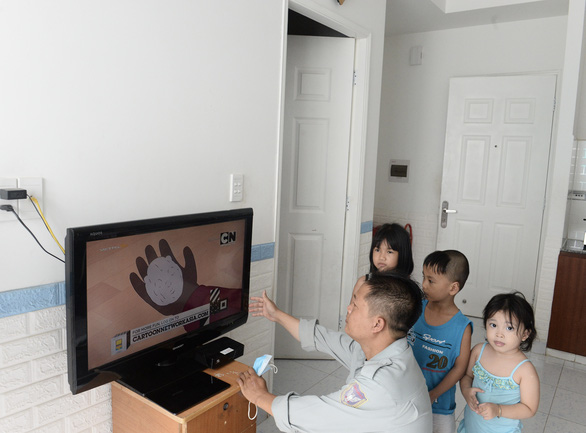One million low-cost houses will be built for workers, especially internal migrants, in Ho Chi Minh City by 2025 as part of the city’s post-pandemic reconstruction to improve housing conditions for low-income earners, local construction authorities said.
The plan will be included in the city’s housing development program by 2025 that will be submitted to the municipal government for approval, the municipal Department of Construction announced recently.
It followed the recent waves of numerous internal migrant workers leaving their rented accommodations in the city for their hometowns after being financially exhausted due to the severe impacts of the COVID-19 pandemic.
Vietnam has battled a new outbreak since late April, with strict travel curbs and business closures leading to job losses and workers leaving urban areas for their homeland in the countryside.
At a meeting with local voters on October 11, chairman of the Ho Chi Minh City People’s Committee Phan Van Mai mentioned the plan as a solution for improving the quality of accommodations for low-income people, including internal migrant workers, to make them feel secure in living and working in the city.
“Voters commented that such migrant workers have contributed significantly to the city but their housing conditions have been neglected,” Mai said.
“The city will improve this in the future.”
During the past inspections of epidemic prevention activities, the local administration has realized inadequacy in housing for workers and this issue must be resolved soon, he underscored.
The COVID-19 pandemic has exposed many problems in urban management including the quality of housing for internal migrant workers who have lived in cramped rooms in rented quarters, Le Hoa Binh, deputy chairman of the city’s administration, said at a recent housing conference.
As a case in point, District 7 has 100,000 boarding houses with rooms covering only 20 to 30 square meters each but accommodating five or six people, Binh said.
Living in such narrow spaces, not only in District 7 but also in many other districts, poses risks of transmission of pathogens including the coronavirus, the official added.
The city will call on investors to build affordable houses for workers to gradually get them out of unqualified boarding houses, Binh said.
“Can city-based businesses join hands to build 300,000 houses per year for low-income workers?” Binh raised a question at the conference.
The official affirmed that the city will streamline administrative procedures for investors to develop social housing projects soon.
In order to implementy such projects, the city must have appropriate land banks for investors, experts said.
In addition, speculation control measures must be taken to ensure cheap houses to actually reach low-income earners.
To have a land bank for social housing, the city needs to get back 20 percent of the land allocated to commercial projects and use the public land left by businesses that have moved out of the inner city, said Ngo Quang Phuc, general director of Phu Dong Real Estate Group Joint Stock Company.
City authorities should also make land banks near industrial parks and export processing zones as well as in districts home to a great deal of internal migrant workers, Phuc added.
Le Huu Nghia, general director of Le Thanh Construction - Trading Company Limited, recommended that the state should flexibly allow conversion of land use purposes so that developers can shift land plots inappropriate for commercial or industrial purposes to social housing projects.
The city should announce specific policies and rules to assist investors in building low-cost houses for workers, Nghia said.
Procedures related to environmental impact assessment, land use purpose conversion, and construction permits, among others, should be carried out in parallel at relevant departments to save time, he elaborated.
“All construction procedures for a social housing project should be completed within six to 12 months,” Nghia advised.
In 2016-20, Ho Chi Minh City built nearly 15,000 new social houses, providing accommodations for 12,000 households, the construction department said.
The city had over 18,000 low-cost houses in 2020, compared to the target of 20,000 cheap homes.
Currently, the city is developing 49 social housing projects that will provide around 30,000 flats for low-income population.
Like us on Facebook or follow us on Twitter to get the latest news about Vietnam!



















































